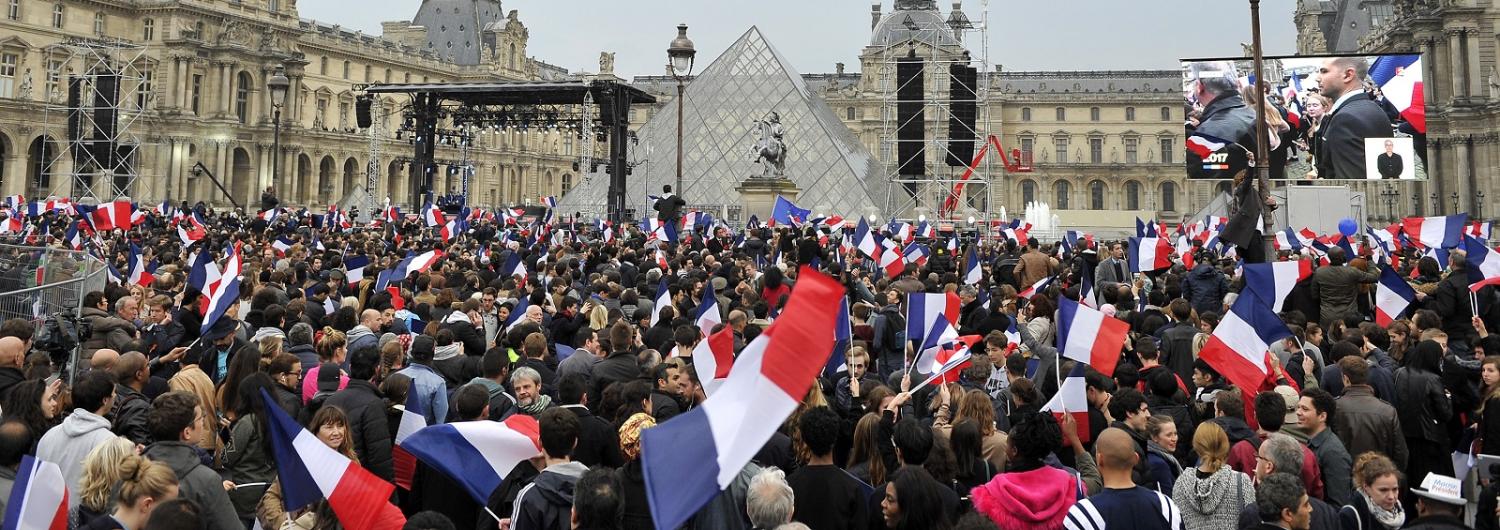Bill Clinton, Barack Obama, Gerhard Schröder and Tony Blair were all young Social Democrats in the classical European definition of politicians - they emanated from the left while espousing the basic tenants of liberal economic policy - who won popular majorities. Whatever missteps they took (many caused by personality flaws), while in power they held the broad middle ground of the electorate together while steering their countries through a macroeconomic context shaped by the advent of the digital economy and increased global competition. The young, centrist social-democrat Emmanuel Macron comes from the same mould.
What has changed over time, however, and what was a feature of the long presidential campaign that Macron has finally won, are the actions of the opposition, especially from those on the right and extreme right. Their shrillness and mendacity, as well as an unabashed willingness to pander to base instincts, have been on display for some time now. The systematic, eight-year long hate campaign against Obama, the first black and arguably one of the best US presidents (who, in an unusual move for him endorsed Macron in a video message last week), was a prime example.
Add to this the actions of a growing number of traditional media, including elements of the expansive Murdoch empire in the Anglo-Saxon world, that amplified such campaigns, thus helping the Brexit vote and the Trump election came to pass. Often in that process those media abandoned their traditional gatekeeper role that saw a clear separation between the creation of news and its dissemination.
Meanwhile the new media - for many of Facebook's almost 2 billion users, it is a major, if not primary, source of news - are only now awakening to the fact that they are not just in the business of clicks. As news providers they occupy a crucial role in the basic functioning of political models based on free expression, rule of law and democracy. They too have a gatekeeper function, which right now they are a long way from fulfilling, as demonstrated two days before Sunday's election in France by the cyber attack by against Macron, which initial reports suggested came from Russia, disseminated via social media.
To this context, add the economic and political problems in France and the fact that almost two thirds of French voters went for the sunny optimist Macron appears to be almost a political miracle. He was up against a formidable populist in Marine Le Pen, who got strictly equal time on French State TV to present her nationalist economic and fiscal scare-mongering, always cleverly couched in patriotic terms.
A miracle, since Macron never hid his social-democratic origin and centrist leanings that are so alien to what has been the strict left versus right chasm of Gallic voting. Macron's main economic teacher was Michel Rocart, one of the very few French social-democrats with a somewhat successful political score card and his first heavyweight backer in his presidential quest was François Bayrou, the proverbial, and lone centrist of the French political landscape. On the extreme left side, Jean-Luc Mélenchon, who represents the traditional socialist firebrand politics and received more than 19% of votes in the first round of the election, could not actually bring himself to say Macron's name but did suggest any vote for Le Pen in the second round would be ‘highly dangerous’.
When Macron told an Algerian Journalist back in March that ‘colonialism was a crime against humanity’, Le Pen played the part of offended French patriot to the hilt, yet failed to dent the lead Macron built in the first round campaign.
Macron's consistently upbeat message on Europe seemed not to have hurt him. In fact, in marked contrast to the current and widespread Euro scepticism, Macron extolled the virtue of the EU and its common currency as a protective shield for France and the French and this seemed to have resonated with voters. It was a marked difference from across the channel where the UK Prime Minister has called a national election to cement the retreat of Britain from Europe.
Macron’s apparent success with Euro-optimism augurs well for the future of the European construction. Traditionally, the EU has progressed when powered by a German-French axis in sync. With regard to Germany’s European policy and politics, whether it will be Angela Merkel or Martin Schulz at the helm after the September election should not matter.
Europe has lately been the whipping boy of an unholy alliance of national conservatives, national Populists and outright authoritarians in the West (and of course the latter’s equivalents in the East), all supported by strict ‘two side-ism’ from many media. The outcome of this presidential vote in France gives some optimism that the EU can regain its position as a respected peacemaker of the past, watchdog over democracy and rule of law in the present, and guarantor of continued European importance on the global stage in the future.
